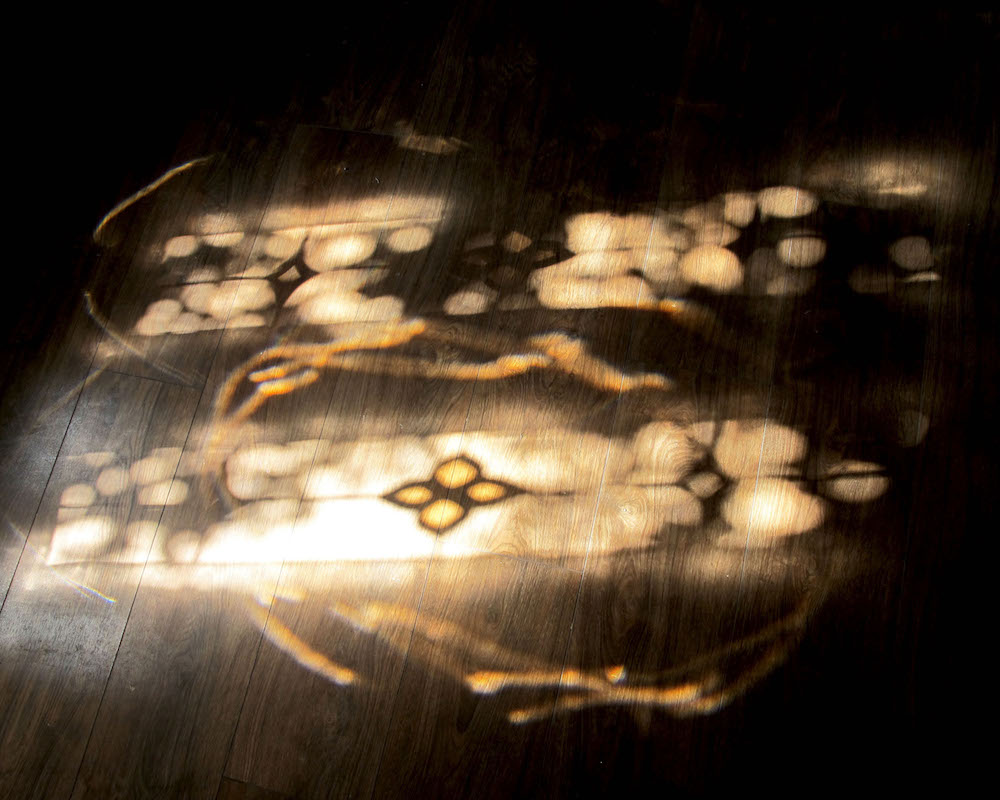Memoir by Mark Brazaitis
The World’s True Light

It was late afternoon on the Fourth of July 1987, and I’d invited Zara (I’ve given her a different name) to watch the fireworks with me from the balcony of the Newsweek office in downtown Washington, D.C. About to begin my junior year in college, I was spending the summer in my mother’s house, although neither she nor my sister was home when I called Zara.
I left my invitation with her mother, whom I’d spoken with several times over the past couple of weeks. Each time I spoke with Zara's mother, her cheerfulness seemed greater than before, as if in proportion to her daughter’s indifference.
Two weeks earlier, Zara and I had had sex in my mother’s basement. If it wasn’t the worst sex Zara had ever had, it probably ranked in the top three. Guilt-ridden over a recent breakup and feeling odd echoes of my childhood in the basement, where my sister and I used to watch The Brady Brunch, I proved alternately tentative and overeager. Afterward Zara and I had showered, and as I lathered her slim, tan body, I wondered if this would be the last time I touched her.
Zara had been in the class ahead of me in high school. I’d had a crush on her, nursed past her graduation by the quarter-page photo of her in the yearbook, which showed her staring past the camera, her lips curled in a small, introspective pout, her dark eyes at once passionate and deeply, mysteriously sad.
Every couple of weeks, I pulled the yearbook off the shelf, turned to the page with her photo, and invented stories about how, one day, the two of us would fall in love. Or she would fall in love; I’d already fallen.
At the beginning of the summer, I’d seen Zara at a party hosted by a mutual friend. We talked in a corner of the living room where there was a bookshelf. Between us, we’d read half the books on it. I mentioned her high school yearbook photo, and she smiled. She told me she’d recently broken up with her boyfriend, a man in his mid-thirties who tended bar in Georgetown. Later at the same party, two of my friends who knew Zara told me he’d hit her. They said she might go back to him.
A week later, I saw Zara at another party, and we talked in front of another bookshelf. Bottles of hard liquor filled a nearby table. Because of her ex-boyfriend, Zara knew how to make drinks with clever and exotic names. I didn’t drink, but she made up for my abstemiousness. At the end of the night, she asked me to drive her home. Halfway, she suggested we pull over. I stopped in the parking lot of a closed toy store, and we kissed. She said, “Let’s go to your place.” My place wasn’t exactly my place, but it could pass for it; my mother and sister were out of town.
In the 48 hours after our basement rendezvous, I called Zara several times. On one occasion, I even managed to reach her rather than her mother and invited her to see Full Metal Jacket. I’d read The Short-Timers, the novel it was based on. I thought I might impress her with a detailed comparison of the book and movie.
Instead of immediately rejecting my movie proposal, Zara considered it in her characteristically elongated way, each word extending like a cat stretching in the sun. She’d heard of the movie; she’d read reviews of it; she wasn’t sure it was any good. She’d given me an opening in which I might sell her on the film, but I didn’t know much about it. I did know about The Short-Timers, of course, and I said all I could think to say about the novel, which amounted to no more than a few disconnected sentences about its brevity and violence. In the end, she said thank you but no thank you. Or perhaps she didn’t say thank you. But she did say no.
On the Fourth of July, I convinced myself there was hope, which I used as an excuse not to invite someone else to Newsweek’s party (although who this someone else might be, I didn’t know) or head off to the party alone, a prospect that likely would have seen me watching the fireworks by myself in a far corner of the balcony.
So, I did something more futile than watching a pot of water in anticipation of it boiling. I watched a phone in anticipation of it ringing.
I lay on the floor of my mother’s living room, as if I’d collapsed and couldn’t move, which, as afternoon faded into evening, began to feel like the truth. I became paralyzed with blistering self-criticism: the breakup with my girlfriend had been my fault and had left her hurt; I had proven incompetent as a lover with Zara, who must have ridiculed me in front of her cool friends; I was unattractive, pretentious; I tried too hard to be liked, which made me unlikeable; I—I—I…
Over the previous couple of months, I’d read several books whose protagonists either contemplate suicide or kill themselves: The Awakening, Madame Bovary, Lie Down in Darkness. The Short-Timers includes a murder-suicide. I’d read these novels with the dispassion and relief that comes with knowing I’ll never be like that. Their depressed protagonists were pitiable subjects to be studied with a clinical distance rather than embraced as fellow sufferers.
Now, on the floor, I found myself among them.
I thought of the Newsweek office. Every Sunday over the summer, I delivered press releases to news organizations around D.C. that highlighted key stories in the magazine’s upcoming issues. I was paid $75 each Sunday—enough to keep me supplied with paperback novels. But the job would prove temporary. By August of that year I would be replaced by a fax machine.
I had never set foot on Newsweek’s balcony. I’d merely glanced at it from inside as I photocopied press releases and collated them with excerpts from the magazine. But now I pictured myself peering over the railing at the ten-story fall. Would anyone at the party warn me from it?
As the sun made its slow passage from afternoon to evening, a gray-yellow light fell onto the floor. It had a quality unlike any I’d seen, seeming at once inert and full of foreboding, like a trembling animal withholding a scream or attack. The light lingered, expanded, rose up the walls. Years later, after I’d succumbed fully to depression and was a patient in a mental-health facility, I saw this insidious light everywhere. It was, I was convinced, the world’s true light, disguised within even the most beautiful of sunrises.
In my mother’s house, the light disappeared, replaced by an unsettling darkness. The phone didn’t ring. I heard fireworks from downtown thump and boom. They sounded like persistent knocks against a fragile door.
Art Information
- “Floor Shadows” © Diane G. Martin; used by permission.
 Mark Brazaitis is the author of eight books, including The River of Lost Voices: Stories from Guatemala, winner of the 1998 Iowa Short Fiction Award; and The Incurables: Stories, winner of the 2012 Richard Sullivan Prize and the 2013 Devil’s Kitchen Reading Award in Prose. A former Peace Corps volunteer and technical trainer, he is a professor of English at West Virginia University.
Mark Brazaitis is the author of eight books, including The River of Lost Voices: Stories from Guatemala, winner of the 1998 Iowa Short Fiction Award; and The Incurables: Stories, winner of the 2012 Richard Sullivan Prize and the 2013 Devil’s Kitchen Reading Award in Prose. A former Peace Corps volunteer and technical trainer, he is a professor of English at West Virginia University.
For more information, you’ll find him at Mark Brazaitis’s website or on Twitter @markbrazaitis.
